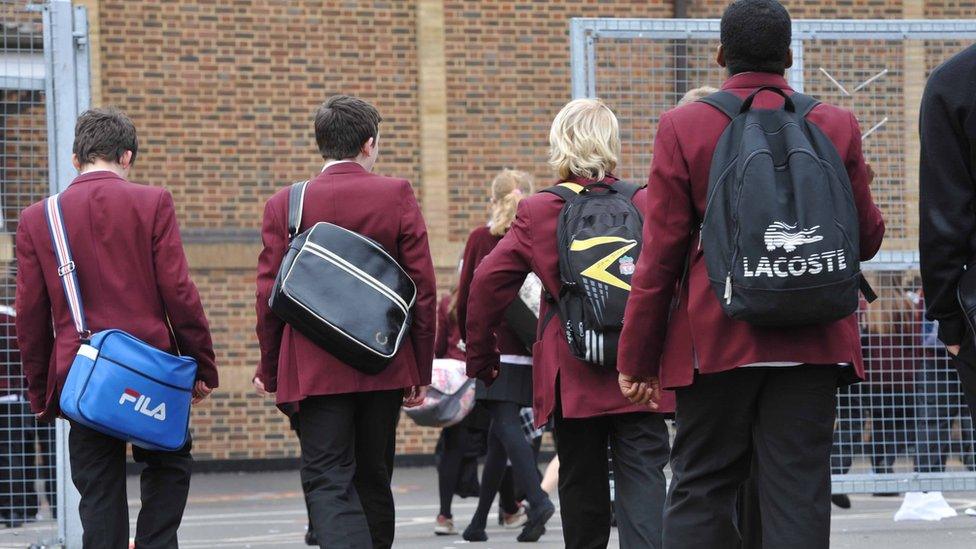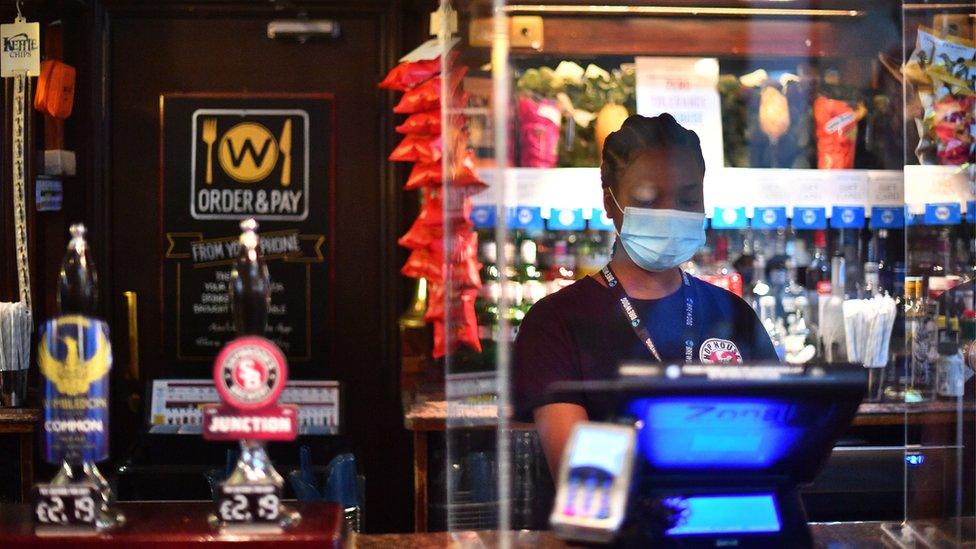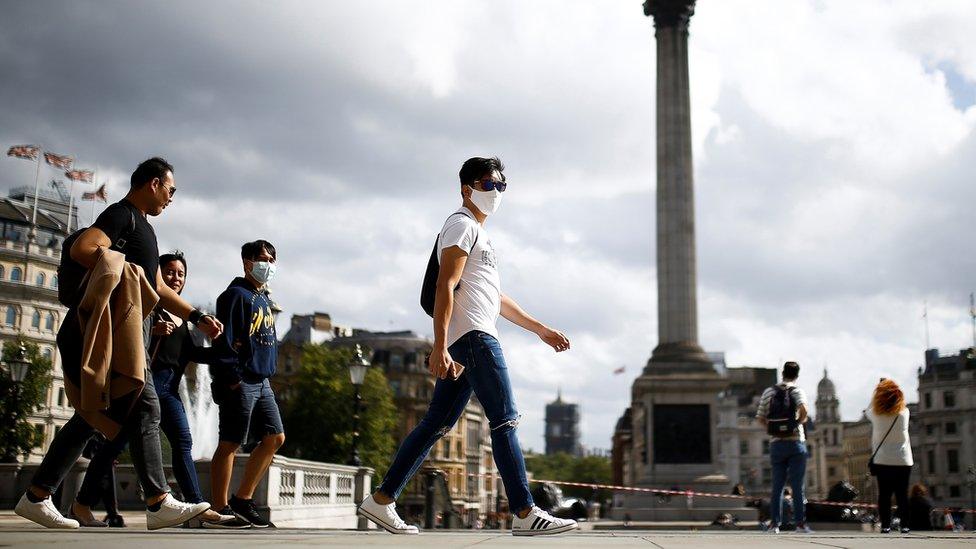Coronavirus: Teens' anxiety levels dropped during pandemic, study finds
- Published

Anxiety levels among young teenagers dropped during the coronavirus pandemic, a study has suggested.
Thirteen to 14-year-olds were less anxious during lockdown than they had been last October, according to the University of Bristol survey.
Researchers surveyed 1,000 secondary school children in south west England.
They said the results were a "big surprise" and it raised questions about the impact of the school environment on teenagers' mental health.
The findings come after Prof Chris Whitty, the UK's chief medical adviser, said children were more likely to be harmed by not returning to school than they were if they caught coronavirus.
The UK's four chief medical officers have sought to allay parents' concerns ahead of schools reopening in England, Wales and Northern Ireland in the coming days. Schools in Scotland have already returned.
And in a bid to encourage parents to send children back to school, Prime Minister Boris Johnson has said it is "vitally important" pupils return to the classroom, with the life chances of a generation at stake.
Researchers compared findings from a survey taken in October last year to answers given by teenagers in May this year. Both girls and boys recorded decreased levels of anxiety during that timeframe.
In October, 54% of 13 to 14-year-old girls and 26% of boys of the same age said they felt anxious.
When surveyed in May - several weeks after schools shut to most pupils and nationwide lockdown restrictions came into force - the proportion dropped to 45% of girls and 18% of boys.
Researchers questioned 1,000 year nine students from 17 secondary schools across the south west of England.
'Big surprise'
"With the whole world in the grip of a devastating pandemic, which has thrown everyone's lives into turmoil, the natural expectation would be to see an increase in anxiety," said lead author Emily Widnall.
"While we saw anxiety levels rise for a few of our participants, it was a big surprise to discover quite the opposite was the case for many of them."
Ms Widnall said pupils who felt least connected to school before lockdown saw a larger decrease in anxiety, raising questions about how the school environment affects some younger teenagers' mental well-being.
Some parents said their experience echoed the survey results. Rebecca from Cardiff, who has a son aged 14 with Asperger's Syndrome and a 12-year-old boy who is also on the autism spectrum, said both children were happy before but the drop in their stress levels has been "unbelievable".
She said they sleep better and have fewer "teenage episodes", such as "shouting, screaming, not wanting to get ready for school, not wanting to get out of bed".
Their grades have also improved because "removing the social side from education has allowed them to focus on the learning", Rebecca said, but added that they were fortunate to have a school which handled online learning well.
Making school 'more supportive'
Caroline Ryder, from Warwickshire, said her sons, aged 13 and 15, missed friends but had been happier and calmer, with less conflict over homework or school behaviour issues.
She said they had kept busy during lockdown learning things from YouTube that were unrelated to the curriculum, such as growing vegetables, bread-making, sewing, home-brewing, carpentry and bicycle maintenance.
"This whole episode has demonstrated to me that school, in its current format, is not a happy experience for many kids," she said.
Others said their children had suffered from the lack of school, however.
Dr Judi Kidger, from the University of Bristol, said: "Our findings raise questions about the role of the school environment in explaining rises in mental health difficulties among teenagers in recent years.
"As schools reopen, we need to consider ways in which schools can be more supportive of mental health for all students."

SCHOOLS: Which are re-opening, when?
SOCIAL DISTANCING: What are the rules now?
LOOK-UP TOOL: How many cases in your area?

There was a 2% decrease in boys at risk of depression and a 3% increase in girls at risk of depression.
The findings have been published in a report for the National Institute for Health Research School for Public Health Research.
Meanwhile, the UK's largest teaching union has accused the government of letting down pupils, teachers and parents by failing to have a "plan B" if infections rise.
The National Education Union, which represents more than 450,000 members, said more staff, extra teaching space and greater clarity on what to do if there is a spike in cases is needed for schools to reopen safely.
It is expected that pupils in Northern Ireland going into years seven, 12 and 14 will return to school full-time on Monday, with the rest going back from 31 August. In England and Wales, pupils will return to school from 1 September.

SUMMER PLANS CANCELLED?: Joe Wicks is here for you - bringing you sunshine in a podcast
GCSE AND A LEVEL STRESS: How to deal with exam result emotions


Are you a young person who suffers from anxiety? Are you a parent of a teenager who has anxiety? Email haveyoursay@bbc.co.uk, external.
Please include a contact number if you are willing to speak to a BBC journalist. You can also get in touch in the following ways:
WhatsApp: +44 7756 165803
Tweet: @BBC_HaveYourSay, external
Please read our terms & conditions and privacy policy
If you are reading this page and can't see the form you will need to visit the mobile version of the BBC website to submit your question or comment or you can email us at HaveYourSay@bbc.co.uk, external. Please include your name, age and location with any submission.
- Published1 August 2020

- Published22 August 2020
